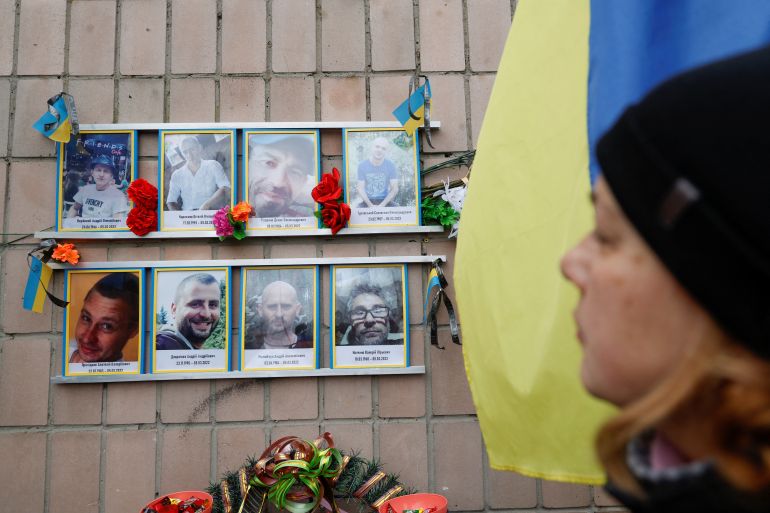In this time of war, too many torturers are evading justice
Democracies cite torture perpetrated by autocracies, while dodging responsibility for their own crimes.

Every morning as I turn on my phone, I brace myself for an onslaught of grotesque images and videos. Since becoming the United Nations Special Rapporteur for torture, I have faced a steady stream of testimonies of alleged torture and inhuman treatment in my email inbox and social media feeds.
There is more conflict in the world right now than at any time since the end of World War II in 1945, with the Red Cross estimating that there are more than 100 conflicts globally. With this increase in violence has come a spike in incidents of torture. The grim headlines from the battlefields of Ukraine, Sudan and beyond mask the often more brutal stories of torture.
War and torture have always been inextricably linked. In the confusion of conflict, it is all too easy for governments to excuse bad behaviour, to hide it and even to authorise it.
But in recent years, technology has facilitated the documentation of instances of torture and other atrocities. Some have been documented by soldiers themselves – mobile phones used to gather potential war crimes evidence seem to have become an essential element of military kitbags.
We have seen this pattern emerge in the war in Ukraine, from where my office has received many disturbing allegations.
Some appear to indicate that Russian military forces and their associates in the country are consistently and intentionally inflicting severe physical and psychological pain and suffering on Ukrainian civilians and prisoners of war.
The level of coordination, planning and organisation of torture incidents being perpetrated in Ukraine suggests a degree of Russian government approval and potentially even state orchestration of torture.
While there have been far fewer allegations about torture being perpetrated by Ukrainian forces, they also exist. Earlier in the year the Independent International Commission of Inquiry on Ukraine noted two cases of alleged torture against Russian prisoners of war and other allegations about torture or inhuman treatment of people accused of being collaborators.
Allegations of sexualised torture in the form of rape and other demeaning and harrowing attacks are also a constant in conflicts.
The United Nations High Commissioner for Human Rights has received reports of 18 incidents of sexual violence committed during the ongoing conflict in Sudan against at least 53 women and girls – the victims include at least 10 girls. In one case, 18 to 20 women were reportedly raped in the same attack.
In the Central African Republic, sexual assault allegations were levelled against Tanzanian soldiers operating as UN peacekeepers who had to be confined to their barracks pending their repatriation.
The allegations that my office receives include testimonies from warring parties who seem to be competing with each other to share the most shocking videos that document the misdeeds of the opposing side. Torture accusations are being traded like political footballs while far too many torturers get away with it. And this is not limited to “the usual suspects”.
Democracies cite torture perpetrated by autocracies, while ducking responsibility for the crimes of their own troops and security services. The misdeeds perpetrated at home or by “our boys” sent on overseas military adventures are often overlooked.
Not a single official of the United States has been prosecuted for the torture and arbitrary detention of the “forever prisoners” of Guantanamo Bay. Neither the British soldiers directly involved nor the policymakers have ever been criminally prosecuted for the inhuman interrogations in the “hooded men” case in Northern Ireland.
Earlier this year, Australia was gripped by defamation proceedings which found that the country’s most decorated living soldier, Ben Roberts-Smith, engaged in war crimes while serving in the Australian armed forces in Afghanistan. This included being complicit in and responsible for murder. In one incident highlighted in the case, a murdered Afghan man’s prosthetic leg ended up as a “war trophy” that was used in drinking games at a bar on a military base.
Yet, despite the Australian authorities launching a full-scale inquiry, there has been just one arrest of a soldier for alleged war crimes committed during the conflict.
We must hold democracies to the highest of standards – if military or security forces torture, they have breached a commitment all states have made to the international community at large. Shields of silence that permeate the armed services must be challenged.
It is time governments show strong moral leadership to ensure that torturers do not escape justice. This leadership must start at home and at the top, and then flow right through to the field captain and the newest recruit.
No country and no individuals are exempt from the universal prohibition on torture and no one should ever get away with committing such atrocities.
The views expressed in this article are the author’s own and do not necessarily reflect Al Jazeera’s editorial stance.
